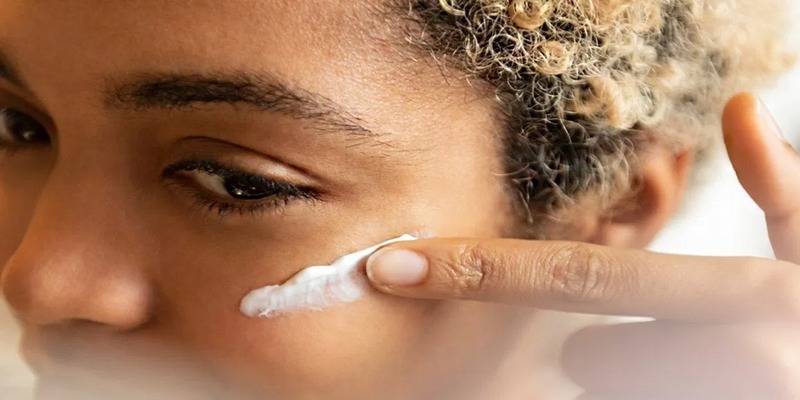
The skin care industry thrives worldwide because many individuals place a high value on preserving the youthful appearance of their skin. Using moisturizers, serums, and eye creams, among other skin care products, can help enhance the appearance of your skin, but your food and lifestyle also play key roles in skin health (Trusted Source).
Collagen

A lot of people take collagen supplements or add collagen powder to their morning coffee in the hopes that it will improve their skin's appearance and texture. Collagen supplements are among the most often advertised products promising improved skin health.
Though researchers are currently studying the effects of collagen supplements on the skin, there is some evidence to suggest that they can help boost moisture, elasticity, and the appearance of fine lines and wrinkles.
Fish Fat (omega-3 fatty acids)
Many believe that fish oil, which is rich in omega-3 fatty acids, may improve almost every health condition. In addition to improving heart health and reducing joint discomfort, omega-3s have been demonstrated to help health in various ways. Is it true that they may make your skin seem better?
Inadequate intake of omega-3 fats can have detrimental effects entrusted Source your skin and possibly cause skin illnesses because of the crucial functions they play in skin function. Omega-3 supplements may help people with skin disorders like atopic dermatitis, psoriasis, acne, and skin ulcers, according to research. There is some evidence that taking omega-3 supplements helps prevent skin cancer.
Vitamin C
Vitamin C is essential for healthy skin since it aids in creating collagen and shields the skin from harmful ultraviolet radiation. This is why vitamin C shortage causes problems with collagen synthesis, slow wound healing, and other skin disorders.
The topical application of vitamin C treatments is widely used to enhance the skin's look, but mayoral vitamin C supplements have the same effect. Collagen formation may be boosted by vitamin C supplementation, as shown by several studies. In addition, studies have shown a correlation between vitamin C in the diet and healthier-looking skin.
Biotin
Biotin is a B vitamin commonly found in hair, skin, and nail supplements from reputable brands. There is no proof that biotin supplements enhance the skin, hair, or nails or improve skin look unless you genuinely have a biotin deficit. Yet, many individuals swear by biotin for bright skin and strong hair.
Biotin deficiency is uncommon; thus, most individuals who are otherwise healthy and eat healthily don't need to take biotin supplements. There are several dietary sources of biotin, including eggs and oats, and your gut microbes also make some.
Vitamins And Mineral Supplements

A multivitamin may assist if you don't receive enough of certain micronutrients in your diet, but are they necessary for skin health? Supplements comprising mixtures of vitamins, minerals, and other compounds have been shown to treat common skin issues, including dryness and dullness, in certain studies.
The dullness, dryness, pigmentation, and general look of the skin were significantly improved in a 2019 study by trustworthy Source, including 50 women ages 35 to 65 who took a supplement comprising a combination of vitamins, minerals, fatty acids, and other components for 12 weeks.
Probiotics
Regular usage of probiotics has been shown to improve intestinal health, which in turn promotes glowing skin. Significant skin problems can be caused by dysbiosis, an imbalance in the population of bacteria that dwell in your gut. Skin diseases, including acne and rosacea, have been related to dysbiosis.
AcneTrusted Source and dermatitisTrusted Source may benefit from probiotic supplements because they have been demonstrated to help restore healthy gut flora balance. You can't expect your stomach to be "balanced" by just taking a daily probiotic.
Can Supplements Create Skin Issues?
While certain supplements have been shown to improve the look and health of the skin, others have been linked to negative outcomes. Some supplements, including whey protein, high-iodine kelp products, and some B vitamins, have been shown to cause or exacerbate human acne.
Because kelp supplements contain high amounts of the mineral iodine, which can boost enzyme activity connected to dermatitis, they have also been found to induce skin conditions. Ask a doctor for help if you've just begun taking a supplement and have seen changes in your skin.
Conclusion
Supplements like collagen, vitamin C, and multivitamins may aid with hydration and wrinkles, and probiotics and omega-3s may help with skin issues like acne, according to studies. Some nutritional supplements may help with skin health, but they are typically unnecessary to keep your skin looking good as you age. Eating a diet rich in plant foods like fruits and vegetables is your best bet if you want to take care of your skin from the inside out. Other helpful measures include:
- Maintaining adequate water and sleep intake.
- Refraining from using tobacco products.
- Reducing alcohol usage.



